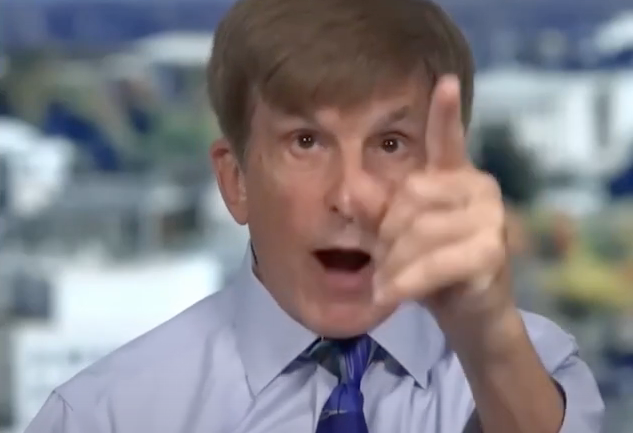Could We Have Medicare-For-All In The United States?
"There are no solutions, there are only trade-offs."
-Thomas Sowell

Comedian Jimmy Dore once spoke to former POTUS Donald Trump through the television screen on Tucker Carlson's talk show on Fox News, and told him "if you give the American people healthcare, you will get your face on Mt. Rushmore."
Jimmy Dore was probably correct. The data is clear; it does seem the majority of the country believes all Americans have access to healthcare, and that it should be paid for through our taxes.
But would it actually work out the way we want it to? As the great economic thinker Thomas Sowell once said, "there are no solutions, there are only trade-offs." I believe Thomas Sowell's sentiment about the economy is correct.
On the other hand, scumbag politicians like Senator Bernie Sanders (I-VT) would like us to believe that the American people will just be able to purchase medicare-for-all without any adverse economic effects or quality disruptions. To most reasonable people, this seems pie-in-sky, and they're right. It seems pie-in-sky because in fact, it is pie-in-sky.
That doesn't mean we can't have medicare-for-all in this country - we actually very well could, but it would come at a price, as well as lots of "trade-offs" - the sort Thomas Sowell spoke about. The idea that we can all just hold hands, vote for medicare-for-all, and usher in the utopia is an absolutely absurd concept, and everyone that's thought about it for longer than 5-second timespans knows that.
To have medicare-for-all in this country, we have to understand first that a lot would change in America's healthcare industry. The first thing that would change is we'd most likely experience a major quality decline in our healthcare. Currently, the most vocal medicare-for-all advocates don't understand that the reason why the U.S.A. has the best quality healthcare in the world, is because there currently exists a profit-incentive that makes it that way. Large corporations invest sometimes hundreds of millions of dollars in R&D to design, research, develop, synthesize, and then manufacture new medicines that cure sometimes the rarest and deadliest of diseases. And what these very vocal medicare-for-all advocates need to realize is that there's never any guarantee for these companies that this very-expensive R&D will be fruitful. There's risk behind any investment, and that includes research and development investments for healthcare and pharmaceutical companies. This is also part of the reason why the U.S. federal government has been so hesitant to shorten the patent periods for newly-invented medicines. These long patent periods give pharmaceutical companies extra incentive to invest into R&D to create these medicines. The longer the patent period, the longer it guarantees a company that is successful in creating an extraordinary new medicine to collect huge amounts of residual return-on-investment after-the-fact. These (possibly somewhat-corporatist) laws are some of the biggest reasons America has been able to have the best quality healthcare in the world for so long. Take away these laws, and the amount of capital investment in pharmaceutical and technological R&D will decline, and in turn, there will also be a qualitative decline in America's healthcare system.
Now, does that mean America will immediately go back to the stone age of medicine? No, of course not. But there will be a drastic slowdown in progress, and if Americans truly want medicare-for-all, that's a trade-off they will inevitably have to make. There's that word again.
Keep in mind, these same profit incentives also inspire the best and brightest of people in our society to attend medical school. It also incentivizes them to pick a specific, highly-niched field of medical expertise, whether it be breast cancer research, virology, or laser eye surgery, as well as a litany of others. Take away that profit incentive for the individual doctors (which you will in a medicare-for-all system), and you'll take away more of that world-renowned quality in healthcare we have here in the United States. Does that mean we'll run out of doctors the day after we switch over to a medicare-for-all system? Again, of course not. But there will be a drop of quality, and this is something the current Bernie Sanders-loving medicare-for-all advocates seemingly don't understand.
The trade-off we'll make for this drop in quality would be universality. We'd take everyone in whenever they were sick, and we'd work as hard as we can to treat them - but you should know that ten years after we make the big switch, we won't be able to see what we could've had as far as medicines and medical technology with the "old-fashioned" patent-protected profit incentives we have now.
Now some might say we wouldn't have to sacrifice those things, because the government could just pay these profit-incentivized companies to do the same work they're doing now! But how much would that cost? Government contracts and partnerships don't work the same way as free-market contracts and partnerships do. Ask any CEO of a company that primarily does its business with the government... they'll all say the same thing - the secret behind their big successes is padding those fat government invoices! It's all but guaranteed that having a medicare-for-all system like the one I've described in this paragraph would be completely unaffordable for the American people, even through taxes. And even if it was, we certainly wouldn't be able to afford that, plus all the other social welfare entitlements we're paying for right now. Even if we decided to ditch all the other social welfare programs in favor of a medicare-for-all system such as this, we'd still probably be paying much heavier taxes than we are right now.
Medicare-for-all in America is certainly possible. We could do it, but it would come at a cost, and it would come with trade-offs. Those who believe otherwise are just being naive; either that or they don't actually believe it at all - they're just lying. It's quite possible though that medicare-for-all may even be the better choice for the American healthcare system, but it would look much different than it does right now, and you shouldn't let some lying, charismatic politician fool you into believing otherwise.




